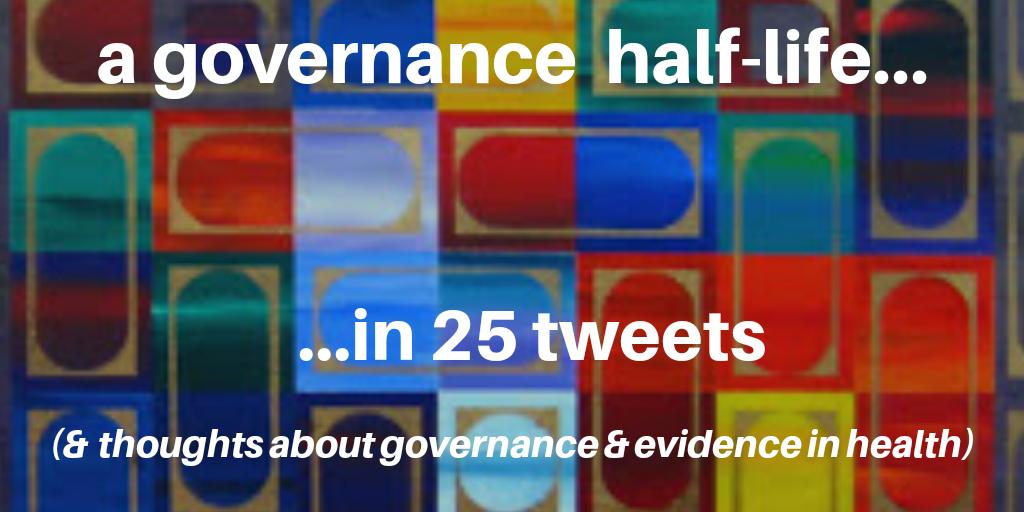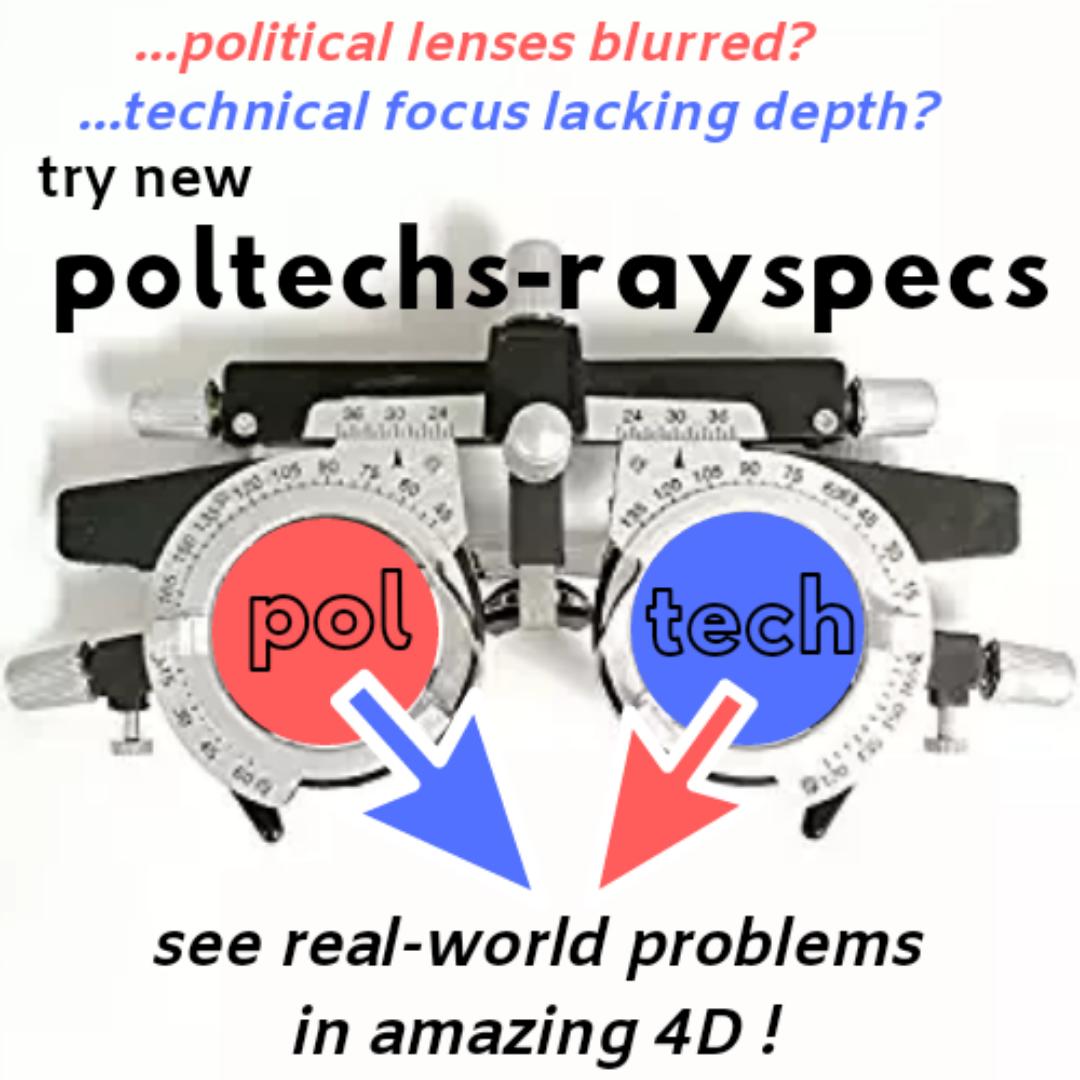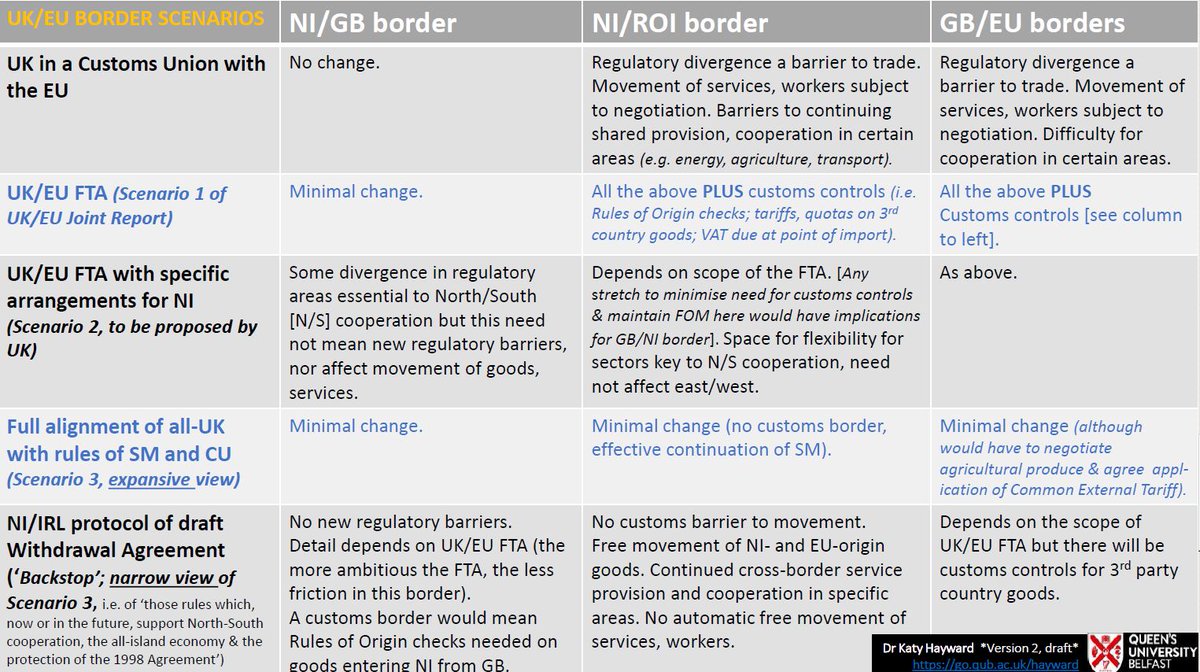‘Doing’ governance & (self indulgent) thoughts on #governance & #evidence & #health
I joined DFID on 9/11 (11/09/2001) as a Social Development Adviser.
Not drunk on the MDGs, but slightly merry.
I had never heard of governance. 1/25

After 6 yrs in Kolkata I heard that DFID was recruiting regional specialists.
I fancied myself as a DFID South Asia specialist! 2/25
I hadn’t heard of ‘Governance’.
But slowly realised that I had worked on it – local govt, politics, rights in health; water tariffs, participation & transparency, health management.
So Governance in sectors, not Governance as a thing. 3/25
Since then some governance themes endlessly change, while more or less staying the same, including in health. For example... 4/25
This contrasts governance projects (e.g. tax, accountability, public sector reform) with tackling governance and political constraints within big sectors (health, ed, energy, security, climate, jobs). 5/25
I think we should deploy at least 50% of governance expertise/££ to help partners tackle enduring problems in big, important dev & growth ‘sectors’ e.g. health.
Otherwise governance speaks unto governance & we risk going spiral, not viral. 6/25
Each new governance generation asserts that ‘politics is REALLY important’. Back in 2001 DFID mainstreamed ‘Drivers of Change’.
My Social Development colleague noted "I see that Governance has discovered Political Science... Again." SDA🔥 7/25

As a junior jimmy consultant my $trat£gy was ‘never say no’. If asked "do you know anything about…XXX?" I said ‘yes’ (then rapidly learnt enough for the next meeting – & shamelessly asked real experts for key reading & advice).
This was…
9/25
So, thinking (& manoeuvring) politically was essential to spot opportunity. But most longterm effort has been ‘technical’, with governments, CSO, World Bank etc. This meant ‘know enough’, not ‘know it all’. But also know real experts. And evidence. 12/25
In the 2000s, sector programmes (health/ed/water/power) had big budgets & sector-wide, transformational ambitions. Many used budget support, including some governance reforms amongst the triggers for disbursing multi-donor aid. 14/25
Like much of ‘old skool’ governance. 16/25
See bit.ly/2EmMSA7 for more on this. 19/25
My own work has also zoomed in, focused downward. More pessimistic. Or realistic. Less conceptual, less value driven, less aspirational. More problem-specific. And often more evidence based.. as the stock of high quality, relevant research grows. 20/25
In 2014 I joined @DFID_RED_GCSD to commission research. Problem focused. Political-AND-technical. (My heart races when I hear a political scientist say ‘pharma molecule’. {In a good way}).
Q: But doesn’t ‘problem focused’ = think small? 21/25
#ESID bit.ly/2YHwHox Mat Health
#GIACE bit.ly/2HWCRue drugs
@BaselInstitute corrupt H networks
@JPAL_Global H accountability RCTs bit.ly/2EqlX6i
✅so looking Fwd to SDG3+ ActionPlan 24/25
So #UniversalHealthCare?
Let’s do this! but #PoliticallyRealistic & #EvidenceBased
*why 'governance Half-life' clickbait?
1993-19=25yrs & I am 50.
25/25
But before then we shld do some conflict and inclusion research threads.




